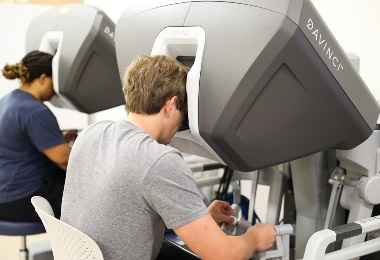Fellowships & Training Programs
At Duke

NSF aiM: AI for Understanding & Designing Materials
A National Science Foundation-supported traineeship program providing specialized coursework, professional skills development and experiential internships.

NSF TAST: Traineeship for the Advancement of Surgical Technologies
A National Science Foundation-funded traineeship providing unparalleled access to real-world robotic design challenges.

Engineering in Service to Society Fellowship
Tuition and stipend support for a semester-long internship at the intersection of technology and public policy.

NIH Biomolecular and Tissue Engineering Pre-Doctoral Training
Fellows receive specialized training with Duke experts plus two years of stipend, tuition and fee support.
With Our Partners

Burroughs Wellcome Fund Researcher Fellowships
Fully-funded research opportunities for work related to the biological sciences, climate change and human health.
Click to inquire.

NSF International Research Experiences for Students
A soft matter research experience at Dresden University of Technology in Germany.
PhD Contacts

Stefan Zauscher, Ph.D.
Director of Graduate Studies and Professor in the Thomas Lord Department of MEMS

